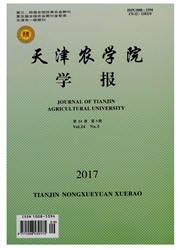

 中文摘要:
中文摘要:
全氟烷酸类化合物(PFAAs)是一类新型的持久性有机污染物,该类化合物的环境和健康风险已经引起了人们的广泛关注。由于长链PFAAs的生殖毒性效应尚缺乏系统的研究,本文采用含全氟十二烷酸(PFDoA)0.1 mg/kg的饲料饲喂大鼠180 d,应用放射免疫分析法和实时荧光定量PCR方法检测了大鼠血清中生殖激素的水平以及卵巢中相关受体的表达。结果显示,PFDoA暴露导致血清雌二醇水平出现减少的趋势,PFDoA显著增加了血清促卵泡刺激素水平,但并不影响血清促黄体生成素水平;PFDoA处理导致卵巢雌激素受体α的mRNA水平降低了25%,卵巢促卵泡刺激素受体的表达增加了36%,但PFDoA并不影响卵巢中促黄体生成素受体的表达。以上结果暗示慢性PFDoA暴露有影响雌激素以及促卵泡刺激素的信号在卵巢中传导的趋势。
 英文摘要:
英文摘要:
Perfluoroalkyl acids are a class of emerging persistent organic pollutants, the concerns on PFAAs potential risk in environment and health has been generated in environmental scientists and related agencies. In order to study the reproductive toxicology of PFAAs with long carbon chains, after 0.1 mg/kg of perfluorododecanonic acid (PFDoA) in food was used to feed female rats for 180 days, radioimmunoassay and real-time PCR were applied to detect the serum reproductive hormones and the expression of the related ovary receptors. The results show that PFDoA exhibited inhibitory trend on serum estradiol (E2) and markedly increased serum follicle-stimulating hormone level. No change in serum luteinizing hormone was observed between control and PFDoA exposure group. Following PFDoA exposure, mRNA level of ovary E2 receptor was dropped by 25% while ovary FSH receptor expression was increased by 36%. PFDoA exposure did not affect ovary LH receptor expression. These results suggest that chronic PFDoA exposure mainly impacts ovary E2and FSH signal transduction.
 同期刊论文项目
同期刊论文项目
 同项目期刊论文
同项目期刊论文
 期刊信息
期刊信息
